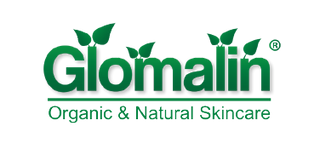
When you read the term organic on a product label, you might ask yourself “Is this just a marketing ploy to get me to buy a more expensive product?” or “What does organic mean exactly?” Coming from an industry that deals with farmers and agriculture businesses on a regular basis, I can tell you that organic is a real thing and that it is crucial to the longevity of modern farming and our planet.
Glomalin uses a majority of different organic, plant-based ingredients including many of our carrier oils, butters and essential oils. These organic ingredients are all extracted from plants that are grown using organic farming practices which are beneficial to the promotion of healthy ecosystems and are better for the environment as a whole.
HISTORY
Agriculture was practiced for thousands of years without the use of artificial chemicals and unnatural practices. Artificial fertilizers were first introduced into farming during the mid-19th century. These early fertilizers were cheap, powerful, and easy to transport in bulk. Similar advances occurred in chemical pesticides in the 1940s, leading to the decade being referred to as the 'pesticide era'. These new agricultural techniques, while beneficial in the short term, had serious long-term side effects such as soil compaction, erosion, and declines in overall soil fertility, along with the many health concerns surrounding toxic chemicals entering our food and water supply. In the late 1800s and early 1900s, soil biology scientists began to seek ways to remedy these side effects while still maintaining higher production, which led to the introduction of organic farming.
Organic farming is an agricultural system which originated early in the 20th century as a reaction to rapidly changing farming practices. Today, certified organic agriculture accounts for 70 million hectares of farmland globally, with over half of that land in Australia, representing approximately 1.4 percent of the world’s total farmland. These organic standards were designed to encourage the use of naturally occurring substances while prohibiting or strictly limiting synthetic or chemical substances. The benefits of organic farming include advantages in sustainability, production transparency, self-sufficiency, health, food security, and food safety.
Organic farming promotes the use of fertilizers of organic origin such as compost manure, green manure, and bone meal and emphasizes on natural yield-optimization techniques such as crop rotation and companion planting. Biological pest control, mixed cropping and the fostering of insect predators are encouraged in farming practices. Genetically modified organisms, nanomaterials, human sewage sludge, plant growth regulators, hormones, and antibiotic use in livestock husbandry are prohibited.
These methods are internationally regulated and legally enforced by many nations, based in large part on the standards set by the International Federation of Organic Agriculture Movements (IFOAM), an international umbrella organization for organic farming organizations established in 1972. Organic agriculture can be defined as:
“an integrated farming system that strives for sustainability, the enhancement of soil fertility and biological diversity while, with rare exceptions, prohibiting synthetic pesticides, antibiotics, synthetic fertilizers, genetically modified organisms, and growth hormones.”
-- Danielle Treadwell, Jim Riddle, Mary Barbercheck, Deborah Cavanaugh-Grant, Ed Zaborski, Cooperative Extension System, What is organic farming?
"Organic agriculture is a production system that sustains the health of soils, ecosystems and people. It relies on ecological processes, biodiversity and cycles adapted to local conditions, rather than the use of inputs with adverse effects. Organic agriculture combines tradition, innovation and science to benefit the shared environment and promote fair relationships and a good quality of life for all involved..."
— International Federation of Organic Agriculture Movements
This last quote gets to the heart of the Glomalin philosophy that we integrate into every step of the creation of our products. Essentially we strive to create and deliver quality products to you that will support and enhance your overall well being while at the same time focusing on sustainable and environmentally friendly practices. Many of our products are made from nearly 100% organically farmed ingredients such as our Rosewater Toner, Anti – Aging Face Serum, Coconut Cleanser and our Lip Balms. We are also aiming to source 100% organic ingredients in the near future and where possible, we would like to buy directly from local farmers so that we can help to uphold organic and sustainable farming practises. When you buy Glomalin products you are not only buying a product that is good for you and actually works, you are also investing in the future of our planet.
Thank you!

